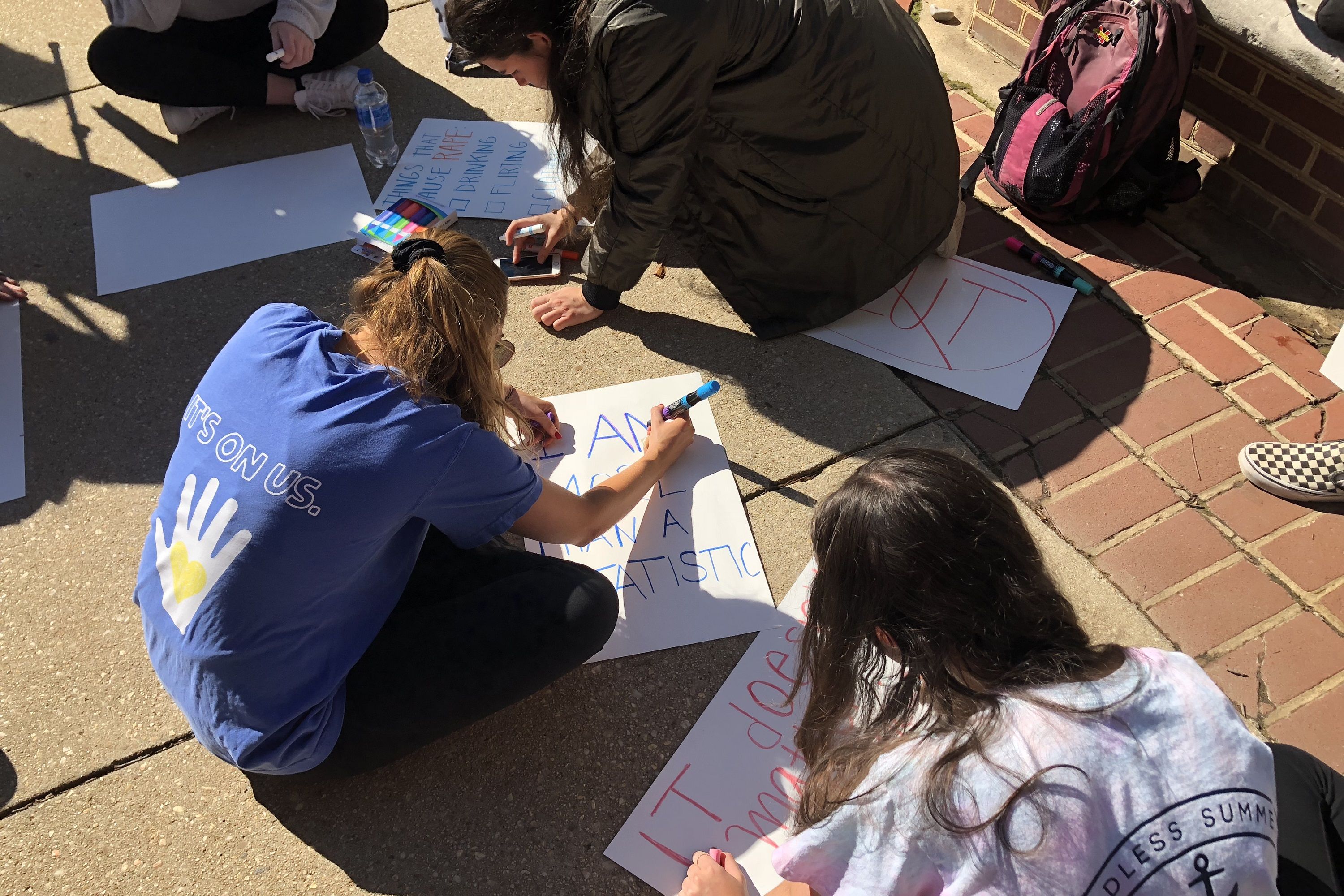The University of Maryland’s annual Slut Walk took place against a particularly troubling backdrop, organizers said, considering recent departures from the school’s Office of Civil Rights and Sexual Misconduct.
The walk was organized by Preventing Sexual Assault, a student group that advocates for survivors of sexual assault. It was held to “open a dialogue” about how the issue is handled on the campus, said PSA President Rachel Colonomos.
Catherine Carroll, the director of the university’s Office of Civil Rights and Sexual Misconduct, resigned in August, leaving the position vacant. Shortly thereafter, Leslie Annexstein, the office’s deputy director, announce she and two other staffers would be leaving.
Since then, the office has brought on two replacement staffers. The search for a new OCRSM director was slated to begin this month, university President Wallace Loh said at a University Senate meeting Oct. 2.
[Read more: “Such a good place to make noise”: UMD students react to Kavanaugh hearings]
At the walk on Friday, a group of about 30 students trekked from McKeldin Library to the administration building, then to Hornbake Library, where survivors shared their experiences and spoke about the walk’s importance.
“However we dress, wherever we go, yes means yes and no means no,” the group chanted as they went.
Given Carroll’s vocal push for more resources for the office in 2016, the recent turnover has Colonomos worried.
“I think that since Carroll left and there are just people who are interims, people are much less comfy going to them because they know these might not be the people following the case to the end,” she said.
[Read more: UMD expelled one student for sexual misconduct last year]
In September, university general counsel Mike Poterala said the new staffers, while interim hires, are likely to stick around.
“I guess we could call it a temporary position, but they’re really expected to work indefinitely at this point as we work to get the director position posted and filled and hopefully give that person the opportunity to fill as many positions as are open on a permanent basis once they’re here,” Poterala said.
Slut Walks are held across the country and the world, with the intention of reclaiming the word slut and creating understanding of the struggles survivors face.
“The reason why we’re bringing it to our campus is because the University of Maryland has a reputation as not really handling sexual assaults in the way they should be handled, or with the respect these cases deserve,” said Colonomos, a senior hearing and speech sciences major.
The concept of the Slut Walk was created in 2011 when a Toronto police officer told a group of women that if they did not want to be sexually assaulted, they should “avoid dressing like sluts.” The first Slut Walk, held in Toronto that year, attracted about 3,000 people.
At this university, the purpose of the Slut Walk is not only to protest slut- and victim-shaming, but also to get the administration to change the way it handles sexual assault cases, said sophomore finance major Binyamin Grinberg.
“It’s going to be loud, it’s going to be intense, a lot of students are going to notice that,” he said. “That energy carries over to other students and hopefully at some point it’ll reach to the administration.”
Last year, the administration changed the way the OCRSM director reports to the university. Carroll, who had previously reported directly to the president’s chief of staff, was reassigned to the university’s general counsel.
To Lizzie Mafrici, a sophomore government and politics and women’s studies major, all of this means the university doesn’t care enough about protecting survivors.
“They see sexual assault as a legal thing, so they’re trying to protect Maryland and have their lawyers address it instead of putting students first,” she said.
Currently, the U.S. Education Department is conducting three investigations into this university’s handling of sexual misconduct cases.
Erin MacKinnon, a freshman animal sciences major, said she learned about the Slut Walk from Facebook and came to educate herself on the issue.
“I think because I’ve heard stories from people that I’m close with, and hearing that pain, it made me want to hear other peoples’ stories so we can figure out how to help them get through it,” MacKinnon said.



